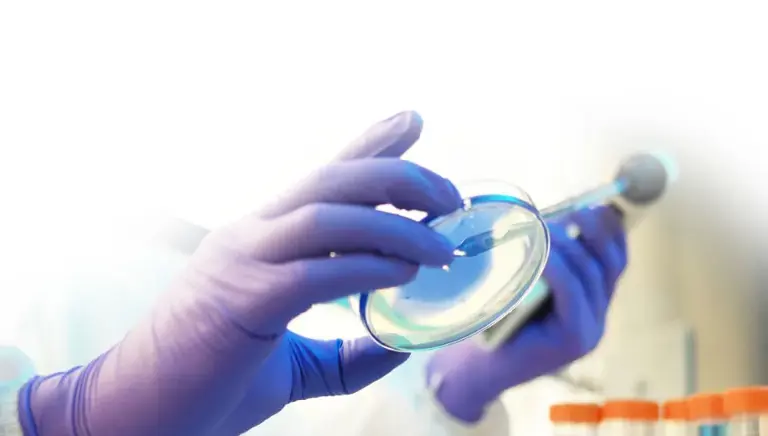Speech: The future of medicines manufacturing
Richard Torbett, Chief Executive of the ABPI, spoke to the Medicines Manufacturing Industry Partnership (MMIP) Annual Conference 2021 about the future of UK medicines manufacturing.
We need to put in place a strategic goal for the UK investment incentive framework to be globally leading and substantially differentiate the UK as a destination for research, development and manufacturing investment. Richard Torbett
[VERSION AS DELIVERED]
Thank you, Andy, for that introduction and thank you for inviting me.
Every year at the MMIP conference we do our best to raise the profile of medicines manufacturing in the UK.
We haven’t had to do that this year, and it’s because of the experience of the last year – we have the ear of ministers and Government.
I want to pay tribute to you all as a group. It is not by accident that we’ve seen successes in manufacturing this year, it’s by MMIP making the case for making the best use of the resources we have. It’s great to be able to reflect on some of these successes and think about how we make the most of the new life sciences vision.
I know that Nadim Zahawi - who spoke here earlier - has a strong commitment to putting the UK back on the map as a destination for global medicines manufacturing.
The Life Sciences Vision is an opportunity to deliver for UK medicines manufacturing
The plan to set out a new Life Sciences Vision builds on a strong commitment to our industry - from the Prime Minister and throughout the government.
The Vision work represents a concrete opportunity to turn our collective ambition into reality for the UK to be a ‘global hub for life sciences’, and a huge opportunity to deliver for NHS patients, drive investment jobs and exports, and contribute to levelling up the UK economy.
The key to this will be to ensure we are globally competitive for investment throughout the life science value chain – whether that’s in early discovery science, development, manufacturing, and clinical trials.
We must be looking to make a best in the world offer to global investors from the UK.
I’m delighted to have met with other members of the Government’s Expert Advisory Group over the past month, and I’m pleased to see some great ideas already being put forward that can set the framework for our sector over the course of this Parliament and beyond.
It’s really good to see that medicines manufacturing is going to be a key element of the Vision. Manufacturing, specifically, can really anchor the economic value of the brilliant scientific advances that the UK life sciences ecosystem contributes so much to.
To make that happen the UK investment incentive framework needs to substantially differentiate the UK as a destination for investment.
This was touched on earlier but I want to emphasize it.
COVID-19 has made this more urgent. Other countries are dramatically accelerating efforts to increase their attractiveness and domestic industrial resilience. It’s vital that the UK is on a level playing field.
In recent years, we’ve not really had that level playing field. Countries like Ireland, Germany and Singapore have been more effective at securing investment – and we’ve seen dramatic growth in manufacturing and exports in those countries as a consequence.
To turn this around, we need a system of globally competitive capital grants. The Medicines and Diagnostics Transformation Fund announced last year was a very positive first step.
But the scale of funding is currently capped at a level that is simply not going to move the needle for many of the more significant investments. We need to match the scale of our ambition, with the same scale of support.
We would urge the government, as it develops its thinking ahead of this autumn’s comprehensive spending review, to enhance this support scheme and signal a multi-annual commitment.
If it did this, we really do think that global investors would notice - and it would allow the many other life science assets that the government has invested in over recent years to genuinely compete on a fair footing.
Lessons from COVID manufacturing and future focus
I want to take the opportunity to say something about COVID vaccines manufacturing and global access.
One of the success stories from the global COVID response has been the remarkable scale-up of vaccine manufacturing capacity – both in the UK and across the globe.
By the end of the year, the industry across the board is on track to deliver over 11 billion doses. This will be an incredible achievement.
But clearly, for the global vaccine programme to be successful, these doses need to get to people across the globe, we can’t ignore the fact this is a very live political and societal debate.
We saw very welcome dose sharing commitments from the UK Government and other G7 leaders at the summit this weekend. This is an important platform for us to build on.
But there have been questions raised about whether waiving IP for COVID vaccines should be considered to boost supply.
We have been clear that IP is simply not the barrier to further scale-up of COVID vaccine manufacturing.
A waiver would not only undermine efforts to tackle future pandemics but in the more immediate term would actually have a detrimental impact on vaccine production, as scarce resources are directed away from manufacturing facilities that have the knowledge and expertise to efficiently produce the maximum number of doses today.
As you may have seen in our global statements on COVID vaccines, the industry is fully committed to supporting global COVID vaccine access and we hope that the inter-governmental and WTO debates on these issues evolve quickly to focus on the real issues.
Investing in medicines manufacturing is investing in levelling up
Moving back to the UK, I want to say clearly that investing in advanced medicine manufacturing is investing in levelling up the economy, this has been a real political priority for some time.
If we look at where COVID-19 vaccines and components for them are being produced in the UK, the levelling up opportunities are clear.
Whether it's Livingstone, Wrexham, Darlington, Durham (to name a few).
Manufacturing is something the whole of the UK can benefit from, and not just our existing industry hotspots.
We can’t ignore the fact that over the last decade, UK medicines manufacturing has been on the decline, with export numbers falling. This is disadvantaging some of our poorest regions.
With medicine manufacturing being amongst the most productive parts of the UK economy, we can’t afford to miss the political opportunity we’ve got right now to address this balance.
With an increased focus on domestic manufacturing capability, there must also be a focus on the UK’s supply chain resilience.
I was encouraged to hear the minister downplaying the importance of onshoring.
I think the message has been heard that it is simply not possible – or desirable – for any country to onshore every medicine and vaccine.
Re-inventing or onshoring long-established medicines supply chains - that not only held up well in the pandemic but which also ensure affordability for the NHS - could divert resources away from initiatives that would significantly boost the hi-tech end of British manufacturing.
We need to be the home to the next generation of medicines and health technologies – some of which could treat and even cure disease for the first time in history.
As an example, we’ve heard much of the recent history around cell and gene therapies and related technologies in the UK already today and there is great potential to build on that.
We are a world leader in translating new science and technologies yet have a poor record of retaining the economic benefits of manufacturing.
If we can finally address this – and ensure UK patients can access these medicines, vaccines and treatments – the life sciences sector can make a real difference and a lasting contribution to levelling up and addressing health inequalities.
It’s a hugely exciting time to be a part of this industry. Today’s discussion has given us an awful lot to build on.
##
- MMIP
Last modified: 20 September 2023
Last reviewed: 20 September 2023

